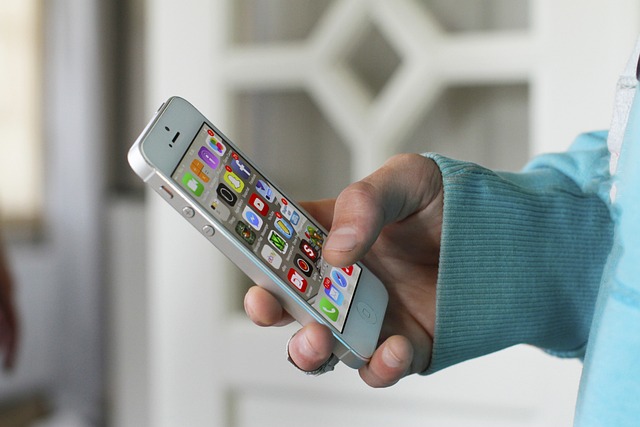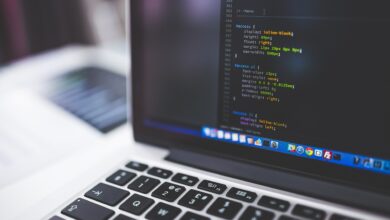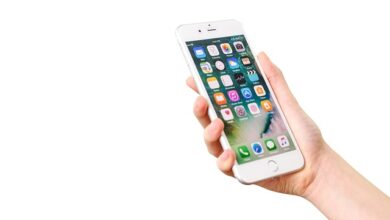
In today’s fast-paced world, staying healthy and maintaining fitness can be a challenge. With hectic work schedules, personal commitments, and the demands of everyday life, finding time to take care of one’s body and mind often takes a backseat. However, thanks to advancements in technology, achieving and maintaining good health is becoming increasingly accessible. One of the key drivers of this shift is the rise of mobile apps designed specifically for fitness and health. These apps have revolutionized the way individuals approach their wellness journeys, offering a wide range of features from personalized workouts and meal plans to mental health guidance and sleep tracking.
This article will dive deep into how mobile apps are reshaping the fitness and health landscape. We’ll explore the different types of health and fitness apps, their benefits, challenges, and how they contribute to overall well-being.
Types of Fitness and Health Apps
Mobile apps for fitness and health come in various categories, each focusing on different aspects of wellness. Understanding the types of apps available can help users choose the right one for their goals.
1. Workout and Exercise Apps
Workout apps are designed to guide users through physical exercises, providing step-by-step instructions and progress tracking. These apps can cater to a variety of fitness levels, from beginners to advanced athletes. Some popular workout apps include:
- Personalized Fitness Programs: These apps provide users with custom workout plans based on their fitness levels, goals, and available equipment. Examples include Nike Training Club, Fitbod, and Freeletics.
- Home Workouts: Apps like Seven and Daily Workouts are perfect for users looking to exercise at home without the need for gym equipment. They focus on bodyweight exercises and are ideal for quick, effective sessions.
- Yoga and Pilates: Apps like Yoga Studio and Glo offer yoga and Pilates sessions for users looking to improve flexibility, balance, and mental relaxation.
2. Nutrition and Meal Planning Apps
Nutrition is a crucial aspect of health and fitness, and meal-planning apps make it easier to eat healthy. These apps help users track their daily caloric intake, monitor macro and micronutrient consumption, and even suggest healthy recipes.
- Calorie Counters: Apps like MyFitnessPal and Lose It! allow users to log their daily meals and snacks, providing real-time feedback on their nutrient intake.
- Meal Planners: Apps such as Mealime and Yummly offer personalized meal plans, helping users prepare healthy meals that fit their dietary preferences and goals.
- Specialized Diets: Some apps cater to specific dietary requirements, such as keto, vegan, or gluten-free. Carb Manager and Cronometer are examples of apps that help users follow specialized diets while ensuring they meet their nutritional needs.
3. Mental Health and Wellness Apps
Mental well-being is just as important as physical fitness. Mental health apps aim to reduce stress, improve mindfulness, and promote emotional balance.
- Meditation and Mindfulness: Apps like Headspace and Calm provide guided meditation sessions, mindfulness exercises, and tools to reduce anxiety and stress.
- Mood Trackers: Apps like Moodpath and Daylio help users track their emotions and monitor changes in mood over time, offering insights into their mental health trends.
- Cognitive Behavioral Therapy (CBT) Tools: Apps such as Sanvello and CBT Thought Diary incorporate principles of CBT to help users manage negative thought patterns and improve emotional resilience.
4. Sleep Tracking Apps
Good sleep is a cornerstone of overall health, and sleep-tracking apps help users monitor their sleep patterns to improve rest quality.
- Sleep Monitors: Apps like Sleep Cycle and Pillow use data from a phone’s sensors to analyze users’ sleep stages and provide insights on how to improve their sleep hygiene.
- Sleep Meditation: Apps like Relax Melodies and Noisli offer soundscapes and sleep meditations that help users fall asleep faster and enjoy more restful sleep.
5. Health Monitoring and Activity Tracking Apps
For those looking to keep a close eye on their overall health metrics, apps that monitor physical activity, heart rate, and even blood pressure have become essential.
- Fitness Trackers: Apps like Apple Health, Google Fit, and Fitbit integrate with wearable devices to track physical activity, including steps taken, calories burned, and active minutes.
- Heart Rate and Blood Pressure Monitors: Some apps, such as Qardio and Blood Pressure Monitor, work with external devices to track important health metrics like heart rate and blood pressure.
- All-in-One Health Platforms: Apps like WellnessFX and Health Mate provide comprehensive health monitoring, allowing users to track multiple aspects of their physical condition, from sleep and nutrition to vital signs.
Benefits of Using Fitness and Health Apps
The widespread availability and convenience of mobile apps for fitness and health offer numerous advantages to users.
1. Accessibility and Convenience
One of the biggest benefits of health and fitness apps is accessibility. Users can access workout routines, meal plans, meditation guides, and health tracking at any time, from anywhere. Whether at home, traveling, or at the gym, individuals can continue their wellness journey without interruption.
2. Personalization
Many fitness apps allow for personalization, tailoring workouts, and nutrition plans to the user’s preferences, goals, and fitness level. Personalized coaching ensures users get the best experience suited to their needs, keeping them motivated and on track.
3. Accountability and Motivation
Fitness and health apps often include features that promote accountability. Users can set goals, track their progress, and even share their achievements with friends or communities within the app. This social aspect provides encouragement, helping users stick to their routines.
4. Cost-Effectiveness
While many fitness and wellness services (such as gym memberships or personal training) can be costly, numerous apps offer free or low-cost alternatives. Even premium versions of apps are typically far less expensive than hiring a personal trainer or nutritionist, making wellness accessible to a broader audience.
5. Data Tracking and Insights
Health apps provide detailed insights into various aspects of an individual’s fitness and well-being. By tracking physical activity, heart rate, nutrition, and sleep patterns, users can gain a clearer understanding of their habits and make informed adjustments to improve their health.
Challenges and Limitations
While fitness and health apps offer many benefits, there are also some limitations and challenges to consider.
1. Accuracy of Data
Some apps rely on user input or smartphone sensors, which may not always be entirely accurate. For example, calorie tracking apps may not account for the exact nutritional content of every food item, and sleep-tracking apps might not always distinguish between light and deep sleep stages with precision.
2. Lack of Professional Supervision
While apps offer guidance, they may lack the personalized attention that a professional trainer or nutritionist could provide. For individuals with specific health conditions or fitness goals, relying solely on an app without consulting a healthcare professional can sometimes be limiting or even risky.
3. Overwhelm and Information Overload
With the plethora of fitness and health apps available, users may feel overwhelmed by the vast amount of information and options. Choosing the right app that fits personal needs can be daunting, especially for beginners who are new to health and fitness tracking.
4. Motivation Decline
While many apps are designed to keep users motivated, some individuals may find it challenging to maintain consistency. Once the novelty of using an app wears off, the motivation to exercise or track health metrics can decrease.
The Future of Fitness and Health Apps
As mobile technology continues to advance, the future of fitness and health apps is promising. Integration with wearable technology is becoming more seamless, offering users even more precise data about their health. Additionally, artificial intelligence (AI) and machine learning are expected to play a bigger role in providing more tailored, real-time feedback and recommendations.
Virtual reality (VR) and augmented reality (AR) technologies are also making their way into the fitness app landscape. VR workout apps, like Supernatural, are already offering immersive exercise experiences that make fitness fun and engaging, while AR apps can provide real-time visual guidance during workouts.
Moreover, mental health apps are expanding to offer more sophisticated therapy options, with some apps collaborating with licensed therapists and healthcare professionals to provide direct care to users.



